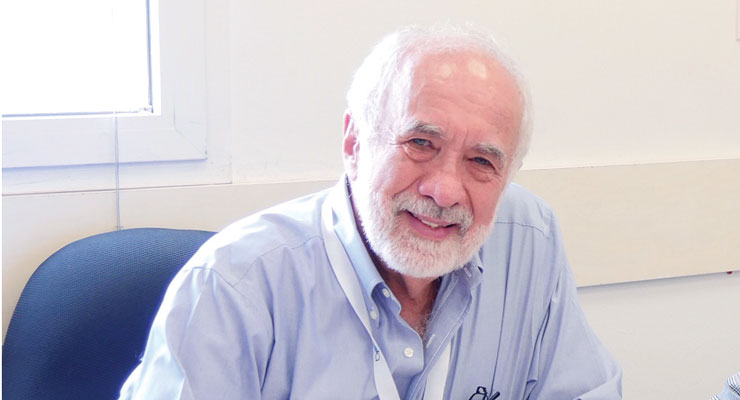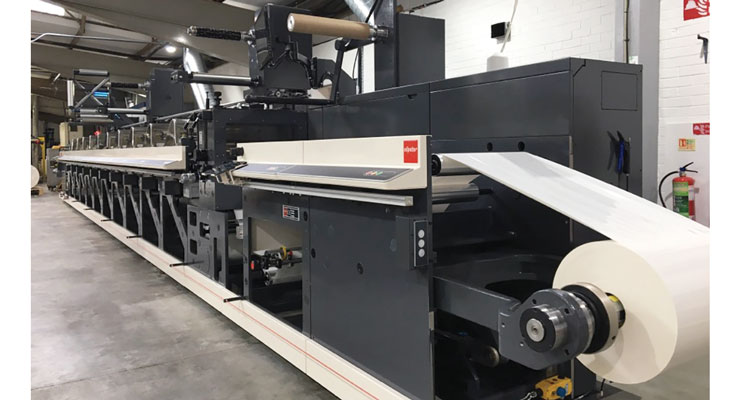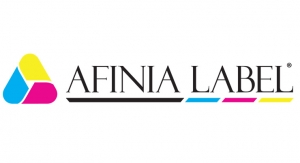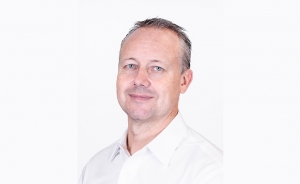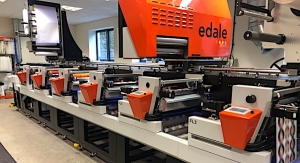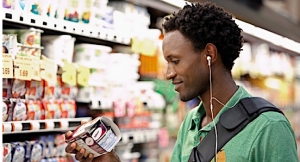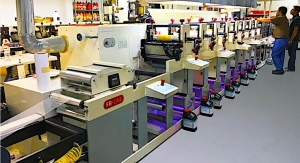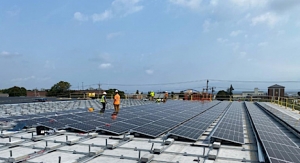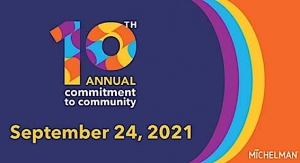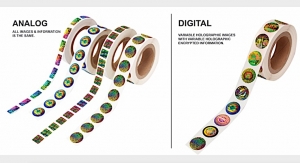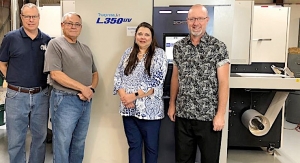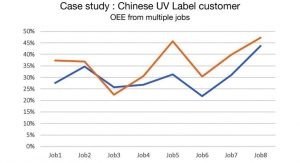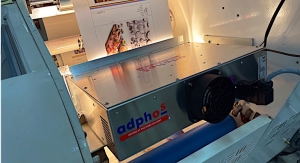John Penhallow10.09.20
Germany is often called Europe’s industrial powerhouse, and clearly the power has been switched off for much of German industry this year. Exports of machinery in the second quarter 2020 were down 23% year-on-year, with exports to Germany’s European partners all suffering badly. Inexplicably, exports to Russia actually rose by 4.5% during the period from January-June. There is however hope among German machinery exporters that the worst is over.
“Companies have recently been able to breathe a sigh of relief, but it will still be a bumpy road back to normality,” says chief economist Ralph Wiechers of industry association VDMA. “In order for export business to return to normal, many of our export markets must first get the consequences of the pandemic under control and develop more confidence for new investments.”
Some investment highlights
At a time when good investment news in the label sector is hard to come by, Denmark-based Nilpeter reports delivery of a 10-color press to UK’s Macfarlane Labels. Based in Kilmarnock, Scotland, Macfarlane Labels also recently acquired an HP digital press as part of a $900,000 investment plan, which has not been knocked off course by the pandemic.
With other plants in Ireland and Sweden (both part of the European Union), Macfarlane does not need to be bothered too much by Brexit (just for the record, Britain’s “transition year” will end on December 31, 2020, whether or not an agreement on its future relationship with the EU has been reached).
When a country has 12% annual inflation and a currency that in the past year has lost 24% of its value, you might think it was a poor business prospect. Bobst can tell you otherwise. Çiftsan Etiket & Ambalaj, Istanbul, has installed a Bobst Master M5X flexo press. This converter makes around 60 million square feet of cosmetics, pharmaceutical and other labels, and a third of its production is exported.
“The configuration of the Master M5X has been optimized in terms of output quality and efficiency, with the added benefits of short delivery times and competitive costs,” comments Erkan Yolgun, Çiftsan’s COO.
Belgian-born Isidore Leiser is at the head of one of France’s biggest label groups. His companies have just ordered no fewer than five finishing lines from AB Graphic, including a Digicon Series 3 with a flatbed hot foil and embossing module. The equipment will be installed before the end of this year and will be used in particular for the still buoyant pharmaceutical labels sector, for which quality is particularly vital, says Leiser.
Food labels are the mainstay of Italian converter Idea-Rolmarkem, whose plant sits in the heart of the Parma region, known as “food valley.” The company has just invested in an Omet X6 flexo press – its third in five years.
Idea Rol-Markem’s co-owner Massimiliano Bacchieri views the future with guarded optimism: “The coronavirus pandemic has slowed down, if not actually stopped many industries across Europe and the globe. This slowdown is likely to continue for the near future, and we see negative trends for industrial growth. But every adversity also brings new opportunities. If we look at the current trends, the decrease in expenditure in the restaurant sector has led to an increase in the production of packaged food, a sector in which we are well-established label providers. Even hygiene and personal care, along with beauty products, are showing signs of recovery now, and we are optimistic towards a new beginning and a better recovery with the opening of the country and the world.”
Nanography very much alive, says Landa
With many voices raised to predict the downfall of the world’s big trade shows, it is refreshing to find at least one industry leader standing out in favor of drupa. Many readers will remember Benny Landa, who for many years has been promising to knock the printing industry sideways with his Nanography.
At a recent digital press conference, Landa announced, “In the future, Nanography will touch the major printing markets: from web publishing to corrugated cardboard, from labels to metal printing to textiles. But this is a secret, don’t tell anyone.”
Since this was a virtual event no one could tell how many in the audience laughed at his little joke. More seriously, he enthused rapturously about drupa, the trade show that has for the past 70 years brought all the Great and Good of the world’s printing industry to Dusseldorf.
As Landa put it, “I love drupa, it’s the trade show for the printing industry; it’s the only trade show that Landa Digital Printing has always attended and the reason is that there are hundreds of thousands of visitors to share our vision of how we see the future of the industry. We will definitely participate at drupa 2021, with the only condition being that of security.”
Nanography seems to still be a work in progress, and the renewed lockdown in Israel – where Landa does most of its research – will not help. But it looks as if this innovative genius will be beating the drums again at the next drupa now scheduled for April 2021. To learn more about Landa in the US, read about K-1 Packaging Group in this month’s Companies to Watch feature, beginning on page 64.
Just about the only European show not to be canceled or postponed this year is Luxe Pack, which is scheduled to open on November 30 at the Grimaldi Forum in Monte Carlo, in defiance of the travel restrictions imposed by several of France’s neighbors. (The principality of Monaco is, and is not, a part of France depending on which way you look at it. Puerto Ricans will understand.)
Alongside the physical Luxe Pack show will be a digital platform for exhibitors and visitors. This, according to the show’s organizer, will “optimize and continue their experience at the show in Monaco or access this major offer for brands that cannot be present.”
Accent Group moves South
The family-owned Belgian converter Accent has been several times a winner of HP Indigo Excellence Awards (no prizes for guessing who supplies their digital presses). Now the group has ventured south, acquiring Stickem, the French converter owned and run by Frédéric Leyval and formerly part of the defunct JPL group. Accent, which already has three converter plants in Belgium, acquired its first French company when it bought up Impakt, just a stone’s throw from the border, in 2019.
More European mergers are likely over the coming months as weaker converters fall into the clutches of financially sounder brethren. As somebody wrote a while back, “Unto those that have shall be given.”
British environmentalists finger Pringles
Spirally wound kraft-based cans are an American invention, much favored for packing refrigerated dough products. The same type of packaging is used by Kellogg’s for its Pringles aperitif biscuits. The biscuits may be delicious, but the packaging, according to UK’s Recycling Association, is a nightmare. It’s a complex construction, as it has a metal base, plastic cap, metal tear-off lid and foil-lined cardboard sleeve.
Now, only three years after being hauled over the coals, Kellogg’s UK is testing new packaging using 90% recycled papers but still with a plastic lining to seal the interior. The top and bottom may be paper or (more likely) plastic.
Simon Ellin from the Recycling Association told BBC News, “The Pringles tube has been a bastion of bad design from the recyclers’ point of view. This new version is an improvement, and we broadly welcome it, but, frankly, if they are going to stick to a plastic lid that’ll just add to problems with plastic pollution – people on picnics leave them behind and they find their way into streams and the sea. That plastic lid has got to go.”
Kellogg’s makes three million Pringles cans in Europe every day, so getting the packaging right is serious business.
Jumping on the bio-packaging bandwagon
This column reported last month on Embelium, the plant-based packaging material designed to replace polystyrene. Stora Enso has not been slow in coming up with its own design, called Cellufoam, now being tested. Full marketing of the product will not be until late 2021.
According to Markus Mannström, EVP of Stora’s Biomaterials Division, “Our bio-based foam offers a renewable, recyclable and biodegradable alternative to traditional oil-based packaging foams such as expanded polyethylene (EPE) and expanded polystyrene (EPS). With this pilot project, we are further expanding our long-term R&D efforts while introducing innovative materials to replace fossil-based materials.”
A 16th-century mill
Europe’s paper mills seem destined to decline in number: but one of the oldest in France, dating back to 1539, is to receive a restoration grant from the Loto du Patrimoine, a lottery created to channel funds to the upkeep of historic buildings.
The Moulin du Verger produces and prints a range of papers using traditional (and mostly museum-piece) machinery. Investigations have shown that, sadly, it does not produce labels.
“Companies have recently been able to breathe a sigh of relief, but it will still be a bumpy road back to normality,” says chief economist Ralph Wiechers of industry association VDMA. “In order for export business to return to normal, many of our export markets must first get the consequences of the pandemic under control and develop more confidence for new investments.”
Some investment highlights
At a time when good investment news in the label sector is hard to come by, Denmark-based Nilpeter reports delivery of a 10-color press to UK’s Macfarlane Labels. Based in Kilmarnock, Scotland, Macfarlane Labels also recently acquired an HP digital press as part of a $900,000 investment plan, which has not been knocked off course by the pandemic.
With other plants in Ireland and Sweden (both part of the European Union), Macfarlane does not need to be bothered too much by Brexit (just for the record, Britain’s “transition year” will end on December 31, 2020, whether or not an agreement on its future relationship with the EU has been reached).
When a country has 12% annual inflation and a currency that in the past year has lost 24% of its value, you might think it was a poor business prospect. Bobst can tell you otherwise. Çiftsan Etiket & Ambalaj, Istanbul, has installed a Bobst Master M5X flexo press. This converter makes around 60 million square feet of cosmetics, pharmaceutical and other labels, and a third of its production is exported.
“The configuration of the Master M5X has been optimized in terms of output quality and efficiency, with the added benefits of short delivery times and competitive costs,” comments Erkan Yolgun, Çiftsan’s COO.
Belgian-born Isidore Leiser is at the head of one of France’s biggest label groups. His companies have just ordered no fewer than five finishing lines from AB Graphic, including a Digicon Series 3 with a flatbed hot foil and embossing module. The equipment will be installed before the end of this year and will be used in particular for the still buoyant pharmaceutical labels sector, for which quality is particularly vital, says Leiser.
Food labels are the mainstay of Italian converter Idea-Rolmarkem, whose plant sits in the heart of the Parma region, known as “food valley.” The company has just invested in an Omet X6 flexo press – its third in five years.
Idea Rol-Markem’s co-owner Massimiliano Bacchieri views the future with guarded optimism: “The coronavirus pandemic has slowed down, if not actually stopped many industries across Europe and the globe. This slowdown is likely to continue for the near future, and we see negative trends for industrial growth. But every adversity also brings new opportunities. If we look at the current trends, the decrease in expenditure in the restaurant sector has led to an increase in the production of packaged food, a sector in which we are well-established label providers. Even hygiene and personal care, along with beauty products, are showing signs of recovery now, and we are optimistic towards a new beginning and a better recovery with the opening of the country and the world.”
Nanography very much alive, says Landa
With many voices raised to predict the downfall of the world’s big trade shows, it is refreshing to find at least one industry leader standing out in favor of drupa. Many readers will remember Benny Landa, who for many years has been promising to knock the printing industry sideways with his Nanography.
At a recent digital press conference, Landa announced, “In the future, Nanography will touch the major printing markets: from web publishing to corrugated cardboard, from labels to metal printing to textiles. But this is a secret, don’t tell anyone.”
Since this was a virtual event no one could tell how many in the audience laughed at his little joke. More seriously, he enthused rapturously about drupa, the trade show that has for the past 70 years brought all the Great and Good of the world’s printing industry to Dusseldorf.
As Landa put it, “I love drupa, it’s the trade show for the printing industry; it’s the only trade show that Landa Digital Printing has always attended and the reason is that there are hundreds of thousands of visitors to share our vision of how we see the future of the industry. We will definitely participate at drupa 2021, with the only condition being that of security.”
Nanography seems to still be a work in progress, and the renewed lockdown in Israel – where Landa does most of its research – will not help. But it looks as if this innovative genius will be beating the drums again at the next drupa now scheduled for April 2021. To learn more about Landa in the US, read about K-1 Packaging Group in this month’s Companies to Watch feature, beginning on page 64.
Just about the only European show not to be canceled or postponed this year is Luxe Pack, which is scheduled to open on November 30 at the Grimaldi Forum in Monte Carlo, in defiance of the travel restrictions imposed by several of France’s neighbors. (The principality of Monaco is, and is not, a part of France depending on which way you look at it. Puerto Ricans will understand.)
Alongside the physical Luxe Pack show will be a digital platform for exhibitors and visitors. This, according to the show’s organizer, will “optimize and continue their experience at the show in Monaco or access this major offer for brands that cannot be present.”
Accent Group moves South
The family-owned Belgian converter Accent has been several times a winner of HP Indigo Excellence Awards (no prizes for guessing who supplies their digital presses). Now the group has ventured south, acquiring Stickem, the French converter owned and run by Frédéric Leyval and formerly part of the defunct JPL group. Accent, which already has three converter plants in Belgium, acquired its first French company when it bought up Impakt, just a stone’s throw from the border, in 2019.
More European mergers are likely over the coming months as weaker converters fall into the clutches of financially sounder brethren. As somebody wrote a while back, “Unto those that have shall be given.”
British environmentalists finger Pringles
Spirally wound kraft-based cans are an American invention, much favored for packing refrigerated dough products. The same type of packaging is used by Kellogg’s for its Pringles aperitif biscuits. The biscuits may be delicious, but the packaging, according to UK’s Recycling Association, is a nightmare. It’s a complex construction, as it has a metal base, plastic cap, metal tear-off lid and foil-lined cardboard sleeve.
Now, only three years after being hauled over the coals, Kellogg’s UK is testing new packaging using 90% recycled papers but still with a plastic lining to seal the interior. The top and bottom may be paper or (more likely) plastic.
Simon Ellin from the Recycling Association told BBC News, “The Pringles tube has been a bastion of bad design from the recyclers’ point of view. This new version is an improvement, and we broadly welcome it, but, frankly, if they are going to stick to a plastic lid that’ll just add to problems with plastic pollution – people on picnics leave them behind and they find their way into streams and the sea. That plastic lid has got to go.”
Kellogg’s makes three million Pringles cans in Europe every day, so getting the packaging right is serious business.
Jumping on the bio-packaging bandwagon
This column reported last month on Embelium, the plant-based packaging material designed to replace polystyrene. Stora Enso has not been slow in coming up with its own design, called Cellufoam, now being tested. Full marketing of the product will not be until late 2021.
According to Markus Mannström, EVP of Stora’s Biomaterials Division, “Our bio-based foam offers a renewable, recyclable and biodegradable alternative to traditional oil-based packaging foams such as expanded polyethylene (EPE) and expanded polystyrene (EPS). With this pilot project, we are further expanding our long-term R&D efforts while introducing innovative materials to replace fossil-based materials.”
A 16th-century mill
Europe’s paper mills seem destined to decline in number: but one of the oldest in France, dating back to 1539, is to receive a restoration grant from the Loto du Patrimoine, a lottery created to channel funds to the upkeep of historic buildings.
The Moulin du Verger produces and prints a range of papers using traditional (and mostly museum-piece) machinery. Investigations have shown that, sadly, it does not produce labels.

